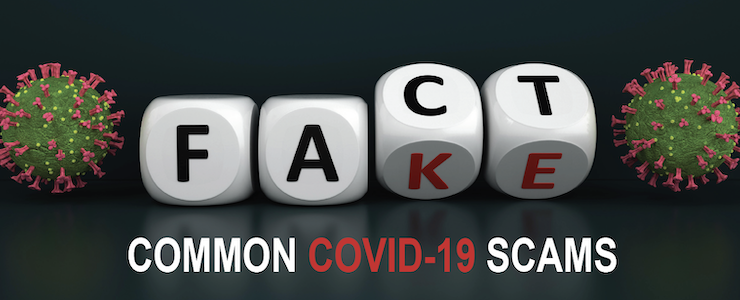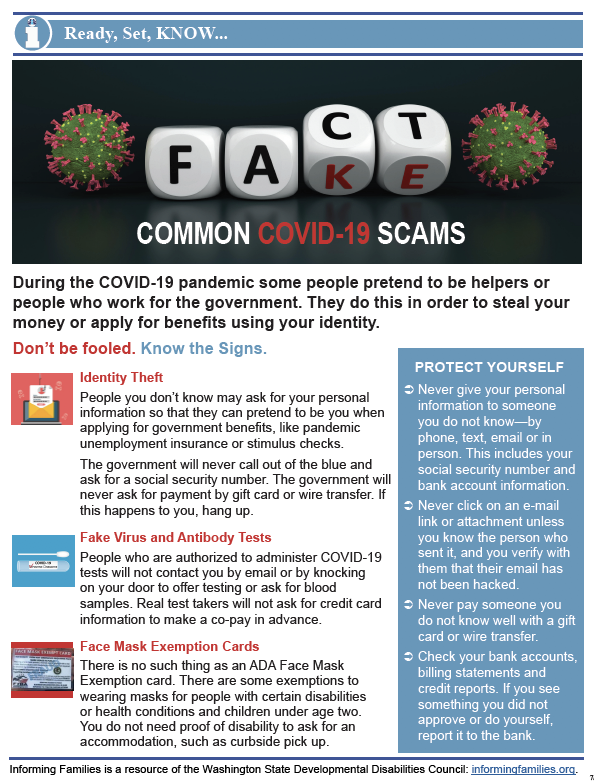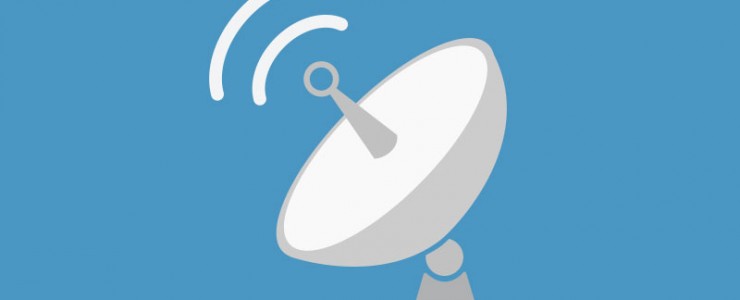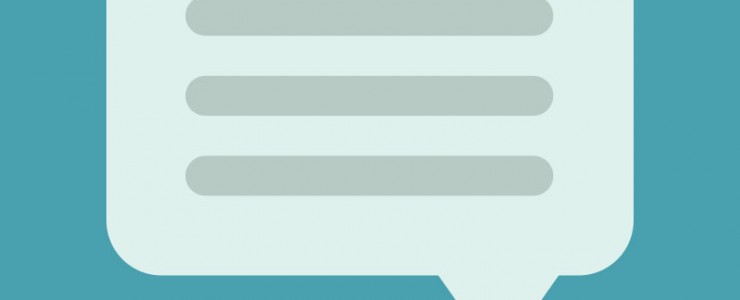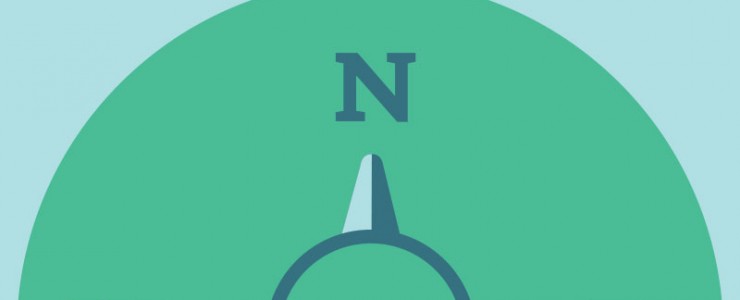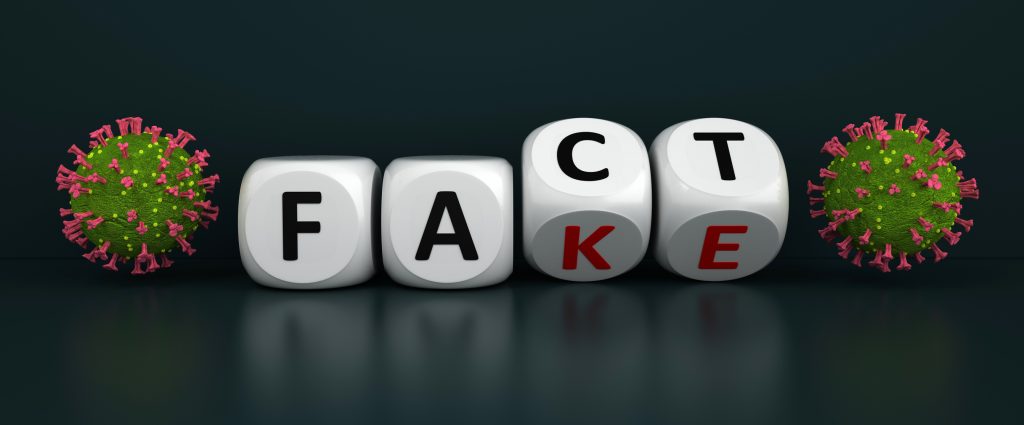
During the COVID-19 pandemic some people pretend to be helpers or people who work for the government. They do this in order to steal your money or apply for benefits using your identity.
Don’t be fooled. Be aware.
Know the Signs
Identity Theft
People you don’t know may ask for your personal information so that they can pretend to be you when applying for government benefits, like pandemic unemployment insurance or stimulus checks.
The government will never call out of the blue and ask for a social security number. The government will never ask for payment by gift card or wire transfer. If this happens to you, hang up.
Fake Virus and Antibody Tests
People who are authorized to administer COVID-19 tests will not contact you by email or by knocking on your door to offer testing or ask for blood samples. Real test takers will not ask for credit card information to make a co-pay in advance.
Face Mask Exemption Cards
There is no such thing as an ADA Face Mask Exemption card. There are some exemptions to wearing masks for people with certain disabilities or health conditions and children under age two. You do not need proof of disability to ask for an accommodation, such as curbside pick up.
Protect Yourself
Never give your personal information to someone you do not know—by phone, text, email or in person. This includes your social security number and bank account information.
Never click on an e-mail link or attachment unless you know the person who sent it, and you verify with them that their email has not been hacked.
Never pay someone you do not know well with a gift card or wire transfer.
Check your bank accounts, billing statements and credit reports. If you see something you did not approve or do yourself, report it to the bank.
Related Resources
Social Security Scams
Unemployment Benefits Scams
Vishing and Phishing
Phone Scams

